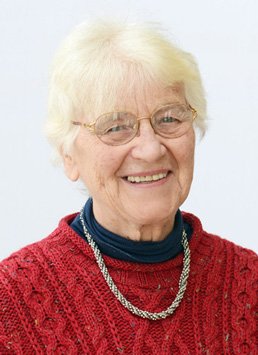Society for the Study of Women Philosophers, Inc.
a non-profit, tax-exempt educational charity 501(c)3 Internal Revenue Code
Hypatia of Alexandria
359/375 - 415
Metaphysics, Philosophy of Mathematics
|
Kate Lindemann's Women Philosophers pages |
 |
Remember!! Your purchase of books by clicking on Abe Books or Amazon links through this site earns us a small commission that is used to provide travel scholarships. |
Most scholars date Hypatia of Alexandria from around 375 or 359 CE. She was the daughter of a philosopher, Theon who was a teacher and a fellow of the Museum of Alexandria. During her time Alexandria, Egypt was a major center of learning and Hypatia of Alexandria became a major figure in the work of science, mathematics and philosophy.
c. 391 Theophilus who was the patriarch of Alexandria destroyed some pagan temples in the city. In the same year, the Emperor Theodosius published an edict prohibiting certain aspects of pagan worship. These actions spurred many Christians in the Roman empire to try to eliminate paganism and some destroyed pagan places of worship.
c. 400 CE, Hypatia of Alexandria became head of the Platonist school in that city. She taught both mathematics and philosophy.
Although she was a pagan living during a time of great tension between Christians and pagans, Hypatia of Alexandria enjoyed the respect of both Christians and pagans alike. A contemporary Christian scholar, Socrates of Constantinople said of her:
"There was a woman at Alexandria named Hypatia, daughter of the philosopher Theon, who made such attainments in literature and science, as to far surpass all the philosophers of her own time. Having succeeded to the school of Plato and Plotinus, she explained the principles of philosophy to her auditors, many of whom came from a distance to receive her instructions. On account of the self-possession and ease of manner, which she had acquired in consequence of the cultivation of her mind, she not unfrequently appeared in public in presence of the magistrates. Neither did she feel abashed in going to an assembly of men. For all men on account of her extraordinary dignity and virtue admired her the more." Source: Wikipedia
Synesius of Cyrene who was the Bishop of Ptolomais was a former pupil of Hypatia of Alexandria and held her in high esteem. In one of his letters to her he complains about people who begin to undertake philosophy after failing at some other career: "Their philosophy consists in a very simple formula, that of calling God to witness, as Plato did, whenever they deny anything or whenever they assert anything. A shadow would surpass these men in uttering anything to the point; but their pretensions are extraordinary." Source: Wikipedia
She remained a controversial figure and she died at the hands of a Christian mob.
Socrates of Constantinople wrote of her death:
". . . it was calumniously reported among the Christian populace, that it was she who prevented Orestes from being reconciled to the bishop. Some of them (Christians) therefore, hurried away by a fierce and bigoted zeal, whose ringleader was a reader named Peter, waylaid her returning home, and dragging her from her carriage, they took her to the church called Caesareum, where they completely stripped her, and then murdered her with tiles. After tearing her body in pieces, they took her mangled limbs to a place called Cinaron, and there burnt them. This affair brought not the least opprobrium, not only upon Cyril, but also upon the whole Alexandrian church. And surely nothing can be farther from the spirit of Christianity than the allowance of massacres, fights, and transactions of that sort. This happened in the month of March during Lent, in the fourth year of Cyril's episcopate, under the tenth consulate of Honorius, and the sixth of Theodosius." The year was 415.
Here you will find secondary sources about Hypatia of Alexandria.
Here is a review of the new film about Hypatia of Alexandria by Alejandro Amenábar.
There is now a YOUTUBE video about this woman philosopher from Alexandria
Hypatia of Alexandria is one of more than 100 women philosophers featured in Busted!! A Pictorial History of Women Philosophers photo album and is featured on the cover of Busted!! A Pictorial History of Women Philosophers DVD Volume 1.
This page was last updated 06/08/16
Society for the Study of Women Philosophers